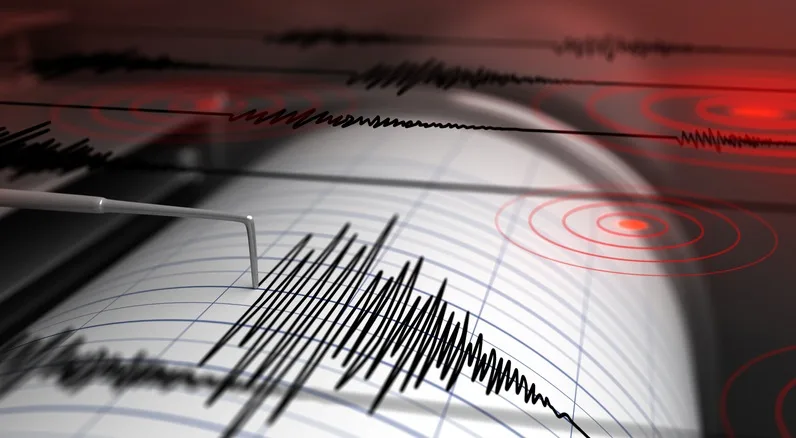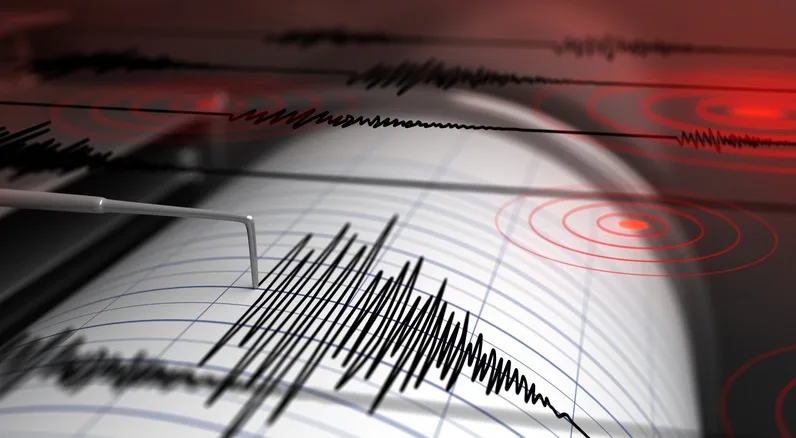
Officials say series of tremors in Delhi not indicative of a larger quake
While the small tremors aren't a likely indication of a larger quake, the possibilty can't completely be ruled out.
Researchers at the Indian Institute of Technology (ITT) have been monitoring Delhi and its surrounding areas, with 64 small earthquakes reported in the area over the past two years.
While one prominent expert says the activity could indicate a larger earthquake is on the way, many experts disagree.
Currently, geologists are unable to forecast the strength of an earthquake or predict when they will occur.
"Neither the USGS nor any other scientists have ever predicted a major earthquake," the USGS says on its website.
"We do not know how, and we do not expect to know how any time in the foreseeable future. USGS scientists can only calculate the probability that a significant earthquake will occur in a specific area within a certain number of years."
While some earthquakes triggered by volcanic activity can be predicted to a limited extent, predicting an earthquake in a region like Delhi is exceptionally challenging because the region is not situated on any fault lines.
And a 2011 study on a Turkish earthquake found smaller quakes are not always a precursor to a larger seismic event.
PROFESSOR SOUNDS THE ALARM
Still, professor Prosanta Khuma Khan, at IIT's applied geophysics department and head of the seismology department has urged authorities to raise awareness about the potential for a large earthquake and for officials to take preventative measures.
MORE ON THE SCIENCE OF EARTHQUAKES
PREDICTION OF LARGER QUAKE HAS 'NO SCIENTIFIC BASIS'
"There is absolutely nothing happening in Delhi that can be called unusual or abnormal,” Vineet Gehlot, former head of the National Centre for Seismology in Delhi, who is now at the Hyderabad-based National Geophysical Research Institute (NGRI) told the Indian Express.
“If you look at the earthquake catalogue, Delhi and its surrounding areas, and this would extend till Jaipur, Ajmer, Mount Abut and the Aravallis, usually experience between two and three earthquakes of magnitude 2.5 and above every month. But there are monthly and annual variations as well. Geological and seismological processes are not very smooth. So sometimes you would expect to see a higher number of earthquakes as well. I am pretty sure nothing special has happened in Delhi in the last couple of months,” Gehlot told the publication.
Gehlot also adds that the detection of earthquakes -- especially smaller ones -- are dependent on the number of seismic recorders in the area.
Delhi and its surrounding communities have the densest concentration of recorders in the country -- even more so than the Himalayan region, which is historically experiences more seismic activity, Gehlot says.
That results in more earthquake recordings.
In a statement, government officials say they have had discussions about the potential for a larger quake following the small tremors and found that "none of these apprehensions has any scientific basis."
"Thousands of such earthquakes are recorded around the world every year, and most of them are uneventful," The Indian Administrative Service (IAS), a government branch, says on its website.
"They certainly do not signal any big upcoming event."

Scientists can't predict when an eathquake will occur. File photo: Getty Images.
BUT A BIG QUAKE CAN'T BE RULED OUT
Still, officials are quick to point out a large earthquake can never be completely ruled out.
"A big earthquake might still occur, which [nobody] can rule out. But they cannot be predicted," the IAS says on its website.
"To say that these small earthquakes are precursors to the big one is totally unscientific. Scientists have been working for years to identify “precursors” to an earthquake, but have so far met with no success."






